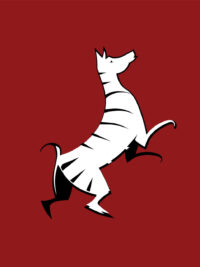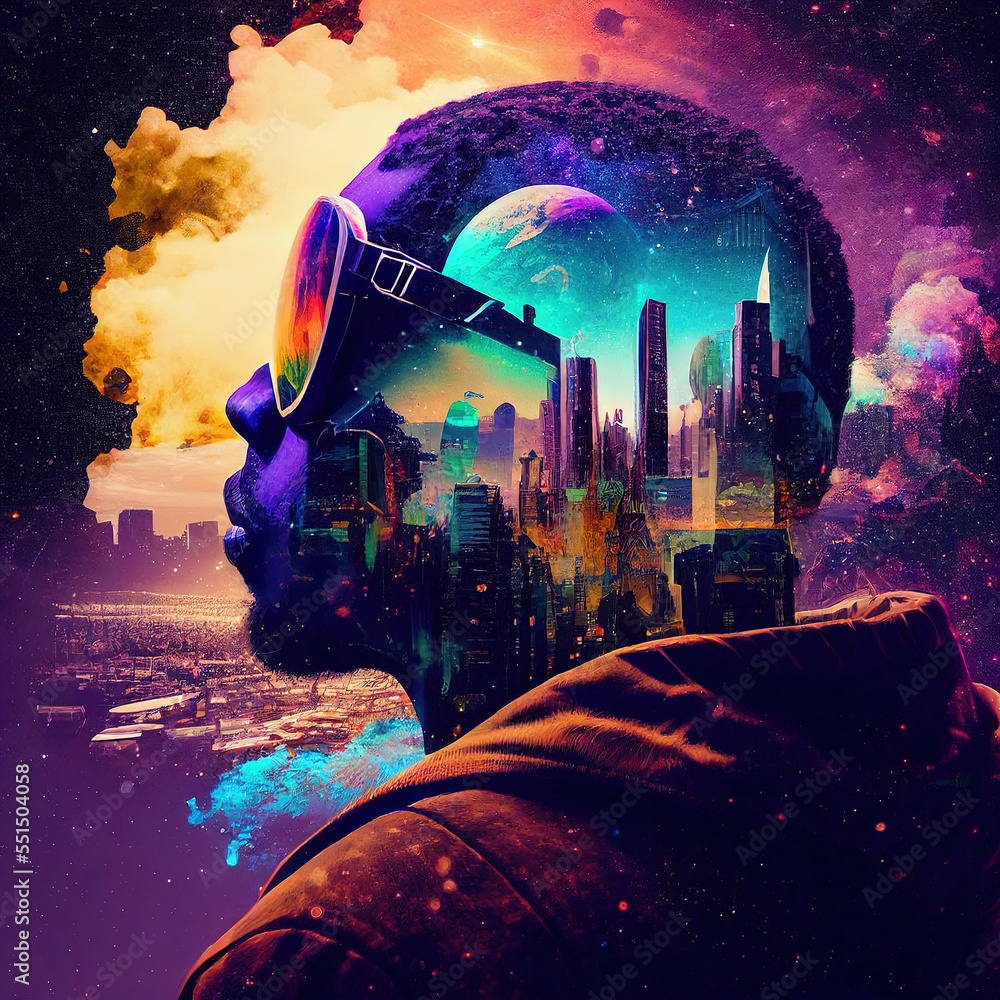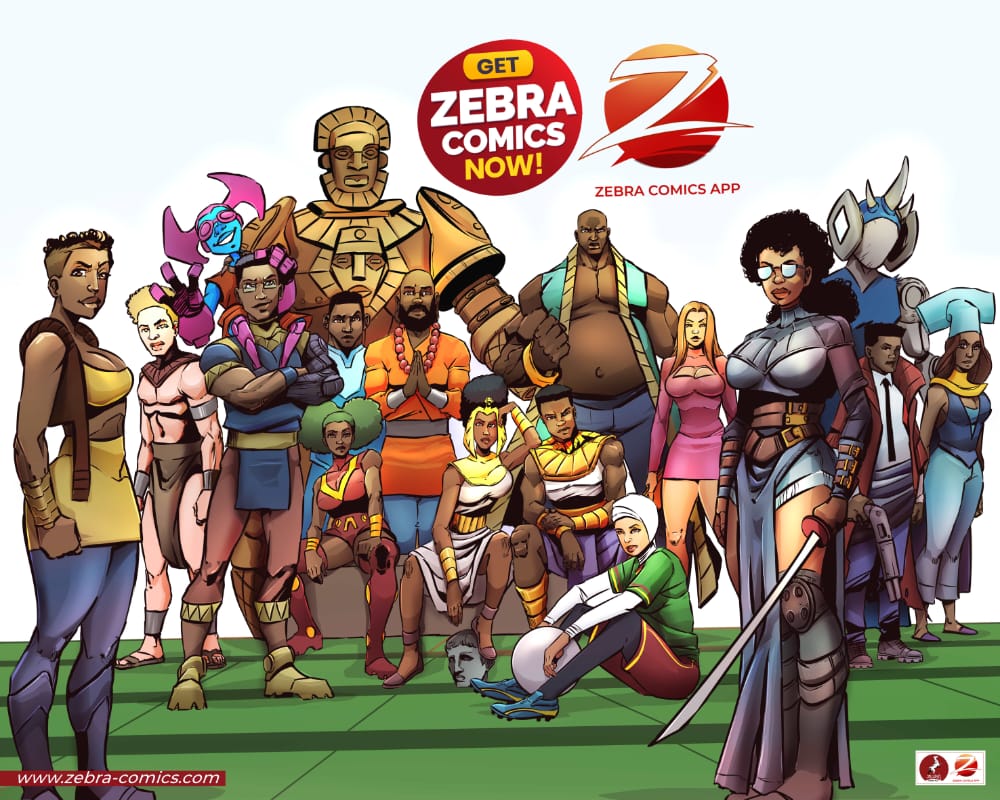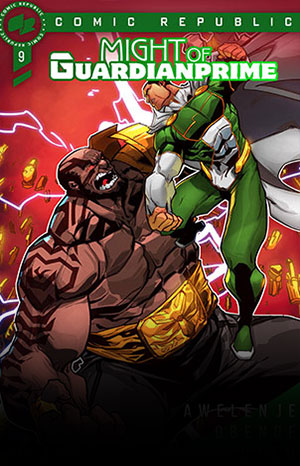NFTs, or non-fungible tokens, are unique digital assets that can be bought, sold, and traded on blockchain platforms. They have been gaining popularity in various fields, such as art, music, gaming, and sports. But what about comics? How are NFTs changing the way comic fans collect and enjoy their favourite stories and characters? Can African comic book creators make use of NFT comics to grow the industry and make money from their craft?
What are NFT comics?
NFT comics are digital versions of comic books that are minted as NFTs. Minting an NFT is the process of publishing your NFT on the blockchain. When that is done, each comic has a unique identifier and ownership history that can be verified on the blockchain. Unlike traditional digital comics, which can be copied and shared easily, NFT comics are scarce and exclusive. They can also have different levels of rarity, depending on the cover art, edition number, or other features.
Some NFT comics are simply digital replicas of existing physical comics, while others are created exclusively for the NFT market. Some NFT comics also offer additional benefits, such as access to exclusive content, community events, or physical rewards.
Players in the NFT comics market?

One of the biggest players in the NFT comics market is Marvel Entertainment, which has partnered with VeVe, a digital collectables app, to launch a series of classic Marvel comics as NFTs. Each comic’s full issue is readable within the VeVe app and sold in blind boxes for $6.99. Each digital comic book has five versions of rarity: Common, Uncommon, Rare, Ultra Rare, and Secret Rare.
Some of the titles that have been released so far include Marvel Comics #1, which features the first appearance of the original Human Torch and Namor the Sub-Mariner; Journey Into Mystery #85, which features the first appearance of Loki, Heimdall, and Asgard; Fantastic Four #1, which features the first appearance of the Fantastic Four and began the Marvel Age of comics; New Mutants #98, which features the first appearance of Deadpool and Domino; House of X #1, which features a new era for the X-Men; and Marvels #1, which features a stunning retelling of the origin of the Human Torch.
Another major player in the NFT comics market is DC Comics, which has collaborated with Palm NFT Studio, a blockchain platform for artists and creators, to launch a series of DC Comics NFT collections. The collections feature the usual superheroes such as Batman, Superman, Harley Quinn, Wonder Woman, and Green Lantern. Based on the rarity level, it is also possible for users to collect comic book covers as NFTs. The NFTs vary depending on the various issues of the comic book covers.
Besides these two giants, there are also other independent creators and publishers who are exploring the possibilities of NFT comics. For example, Bad Idea Comics, a new comic book publisher that aims to disrupt the industry with unconventional strategies, has announced that it will release its first NFT comic book called Whalesville x Rocks and Minerals. The comic will be available for free to anyone who owns a Bad Idea button or pin. Another example is The Source, an original sci-fi comic book series that is being sold as an NFT collection on OpenSea, a popular marketplace for NFTs.
Benefits and challenges of NFT comics?

NFT comics offer several benefits for both creators and collectors. For creators, NFT comics can provide a new source of income and exposure, as well as more creative freedom and control over their work. They can also leverage blockchain technology to create interactive and immersive experiences for their fans. For collectors, NFT comics can offer a novel way to enjoy and display their favourite comics, as well as access to rare and exclusive content. They can also benefit from the potential appreciation of their NFTs in value over time. Hence, African comic creators can use this as an alternative medium to publish digital comics.
However, there are also some challenges and risks involved in the NFT comics market. For comic creators, they have to deal with the technical complexities and costs of creating and minting NFTs, as well as the legal and ethical issues of intellectual property rights and royalties. They also have to compete with other creators and platforms for attention and demand. For collectors, they have to cope with the volatility and uncertainty of the NFT market, as well as the security and environmental concerns of using blockchain technology. They also have to be careful about scams and frauds in the NFT market, such as fake or stolen NFTs, or misleading and exaggerated claims about the uniqueness and value of certain NFTs. Additionally, NFTs are still a new and evolving technology, which means that their long-term viability and compatibility with other digital platforms and standards are uncertain. Therefore, while NFTs offer exciting opportunities for digital comics, they also require careful consideration and management to avoid potential pitfalls and drawbacks.
Conclusion
NFT comics are a new and exciting phenomenon in the digital comics market. They offer a unique opportunity for creators and collectors to explore the possibilities of blockchain technology and digital art. Some African comics are already published on other digital platforms such as Zebra Comics, Kugali Media, Comic Republic, YouNeek Studios and many others. NFTs might just be another option for them. However, NFT comics also pose some challenges and risks that need to be addressed and overcome. African comic book creators can make use of NFT comics to grow the industry and make money from their craft by exploring the possibilities of blockchain technology and digital art. As the NFT comics market evolves and matures, it will be interesting to see how it will shape the future of comics and storytelling.




